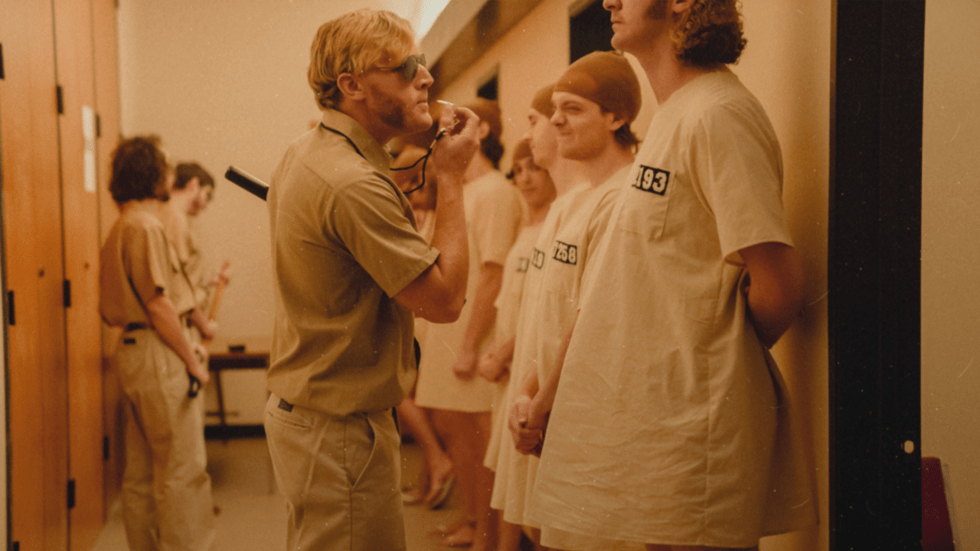“Emergent City” documents the struggle of longtime residents of the Sunset Park neighborhood in Brooklyn, New York to stop the Jamestown investment group from rezoning Industry City (a 16-building, 35-acre complex on the waterfront.)
Over many years the longtime residents (mostly Chinese and Latinx) have made good wages at the existing small warehouses in the Sunset Park but Jamestown wants to turn Industry City into a luxury hotel and home for tech entrepreneurs. The working-class people there fear this will drive the small businesses away and leave only low-paying service-oriented jobs.
I can relate. I’ve lived in North Williamsburg for 27 years and watched it change from a place for low cost rents for artists, with small shops run by local Polish and other ethnic residents to a super-gentrified neighborhood with an Apple Store, a Whole Foods and a river front with very expensive condos. I’m always amazed by the number of locals I see walking around on week days. Don’t any of them have to go to work? (I’m semi-retired; I have a good excuse for not working!) Now some of these well-off young people are looking to move to Sunset Park as a cheaper alternative.
Neighborhood organizers, some of whom are members of UPROSE, “Brooklyn’s oldest Latino community-based organization” fought successfully to thwart the rezoning, but not without lots of rescheduled meetings, long nights reading ridiculously long documents provided by the investment group and suspicions about the loyalty of their City Council member, Carlos Menchaca. Is he fighting for them or for the Industry City CEO Andrew Kimball? (Menchaca lost his office in the next election.)
Directors Kelly Anderson (“My Brooklyn”) and Jay Arthur Sterrenberg, both of whom live in Sunset Park, followed the story for months, partially during COVID, portraying the organizers with compassion and honesty. Unfortunately, the corporate capitalists were not as available to the filmmakers as the organizers were. This may have yielded more insight into how to fight them the next time and there will be a next time. I highly recommend this important, often moving, documentary to anyone who cares about affordable housing in America.
“Emergent City” will make its national broadcast premiere in 2025 as part of POV’s 38th season.

The first episode of “The Stanford Prison Experiment: Unlocking the Truth,” a three part series which will air later this year on the National Geographic channel, was shown as part of the Tribeca TV Festival. If you are psychology buff or student you are well versed in the famous experiment, conducted in August 1971 at Stanford University.
Professor Philip Zimbardo hired a small group of male students (at $15 an hour) to take part in an experimental recreation of prison life on the Stanford campus. Half of them would play guards and half of them would play prisoners. After only six days Zimbardo’s girlfriend (also a psychology professor) reportedly visited the experiment and, shocked by the way the guards were behaving, demanded that he close down the experiment.
For over fifty years Zimbardo touted the experiment as proof that individuals are influenced by situations to act out in what they believe are roles they need to fulfill. There were positive results because of the study but from the get go many scientists were skeptical of the methodology of the study. Zimbardo was even used by the defense in the Abu Ghraib Prison torture case to testify that a few “bad apples” were responsible, and not the military itself.
Now, a French researcher has studied the archives very closely and contacted the actual participants of the study. It turns out that the guards were coached to be abusive guards. The chief guard (nicknamed “John Wayne”) was an aspiring actor and says he tried to emulate Strother Martin’s sadistic prison chain gang boss from the 1967 film “Cool Hand Luke.” They were all pot-smoking hippies who thought the experiment would prove how evil prisons are!
It’s similar to the work of Dr. Jean-Martin Charcot, the 19th-century neurologist whose work with hysterical female patients has been debunked as a codependent system of suggestion: the patients picked up on the symptoms the doctor was hoping they would demonstrate and delivered them.
The first episode is engrossing, especially as the participants relate how the study changed and informed their future lives. Many still feel damaged or guilty because of their participation. The future episodes will confront Zimbardo directly as well as compare a new reproduction of the experiments with the original filmed material. I look forward to seeing it.
Winner of the Best Documentary award at Tribeca, “Hacking Hate” follows young Swedish journalist My Vingren as she uses her expert social media skills to identify and expose online leaders of white nationalists. While I applaud her work, I didn’t find this portrait to be suspenseful at all and only mildly interesting.
